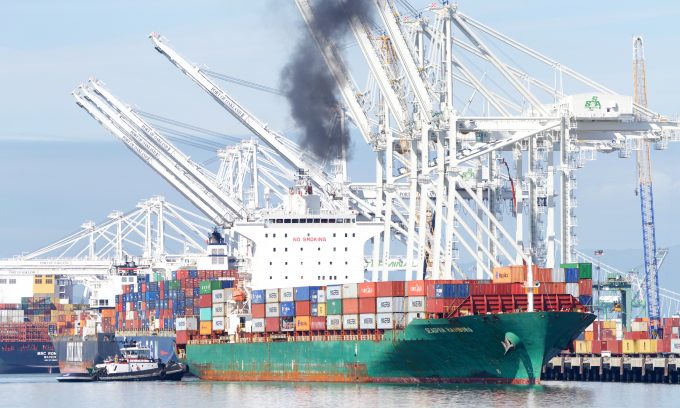Muddy waters at COP29 obscure climate consensus – progress elsewhere, though
That COP29’s week in Baku has turned into an embarrassment is impossible to ignore. Delegates may ...

Pressure is mounting on the International Maritime Organization to come up with a deal that will see the industry reach net zero emissions by 2050, not least from the World Bank, which may perhaps be more concerned with the emerging banking crisis.
Discussions at the IMO’s intersessional group will inform the July Marine Environment Protection Committee, the body that decides the direction for maritime decarbonisation. An excellent article in The Guardian reveals that pressure from those outside of the industry, led ...
Trump tariffs see hundreds of cancelled container bookings a day from Asia
'To ship or not to ship', the question for US importers amid tariff uncertainty
'Chaos after chaos' coming from de minimis changes and more tariffs
Forto 'sharpens commercial priorities' as it lays off one-third of staff
List of blanked transpac sailings grows as trade war heats up and demand cools
EC approves DSV takeover of DB Schenker
'Disastrous' DSV-Schenker merger would 'disrupt European haulage market'
Overcapacity looms for ocean trades – with more blanked sailings inevitable
Amazon Air’s metamorphosis: 'a different air cargo unit from two years ago'
Shippers in Asia restart ocean shipment bookings – but not from China
India withdraws access for Bangladesh transhipments, in 'very harmful' decision
'Tariff hell' leaves industries in limbo – 'not a great environment to plan'


Comment on this article